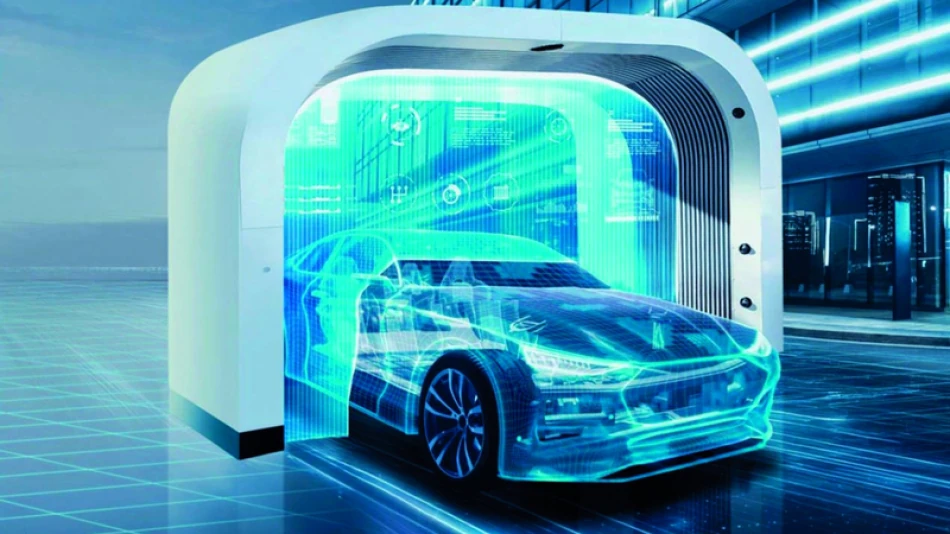
Dubai Unveils Innovative Vehicle Inspection and Maintenance Corridor, Completing Checks in Just 15 Seconds
Dubai's Roads and Transport Authority unveiled a new AI-powered vehicle inspection system that cuts inspection time from 17 minutes to just 15 seconds. The AutoCheck360 system uses artificial intelligence and computer vision to inspect cars without human involvement, and it won't cost drivers any extra fees.
The system launched its pilot phase at the Wassal Al Jaddaf center in the second quarter of 2025. Dubai plans to roll it out across all 29 inspection centers in the emirate by the third quarter of 2026, after analyzing the operational data from current testing.
Here's how it works: Cars drive through a smart inspection lane equipped with 16 cameras that capture over 4,000 images from every angle. The system also includes undercarriage scanners and tire inspection devices, all powered by AI sensors and lasers that evaluate the vehicle's condition in seconds.
"Vehicle safety is the foundation of road safety," said Musaed Al Hammadi, Director of Licensing Systems at Dubai's RTA. "This system represents government innovation in applying AI to operational services. It relies on computer vision and IoT to reduce human error and standardize inspection criteria with unprecedented accuracy."
The technology addresses a real need in Dubai, where over 2.3 million registered vehicles require regular inspections. Traditional inspections involve human inspectors checking various components, which takes time and can lead to inconsistent results between different inspectors.
AutoCheck360 evaluates vehicles using nine main technical criteria that break down into more than 200 detailed standards. The AI analyzes all this data to provide consistent, accurate assessments every time. This means drivers get the same quality inspection regardless of which center they visit or which day they come in.
The system brings several practical benefits. It eliminates human error through precise AI analysis and reduces safety risks for both employees and customers by minimizing human involvement in potentially dangerous inspection areas. The automated process also means shorter wait times and more predictable service.
For Dubai's government, this fits into a broader digital transformation strategy. The emirate has been pushing to digitize public services and reduce bureaucratic delays. Vehicle inspections were one of the last manual processes that required significant time and human resources.
The RTA is also showcasing other AI projects at GITEX Global 2025, including smart vehicle networks, intelligent traffic solutions, and aerial taxi systems. These initiatives show how Dubai is building an integrated smart city ecosystem rather than just implementing isolated technologies.
The economic implications are significant. Faster inspections mean higher throughput at existing centers, potentially reducing the need for additional facilities as vehicle numbers grow. The system also generates detailed data about vehicle conditions across Dubai's fleet, which can inform infrastructure planning and safety policies.
But the real test will come during the expanded rollout. While the pilot phase at one center provides valuable data, scaling to 29 locations will reveal whether the system can handle Dubai's full inspection volume while maintaining accuracy and speed.
Most Viewed News

 Sara Khaled
Sara Khaled






